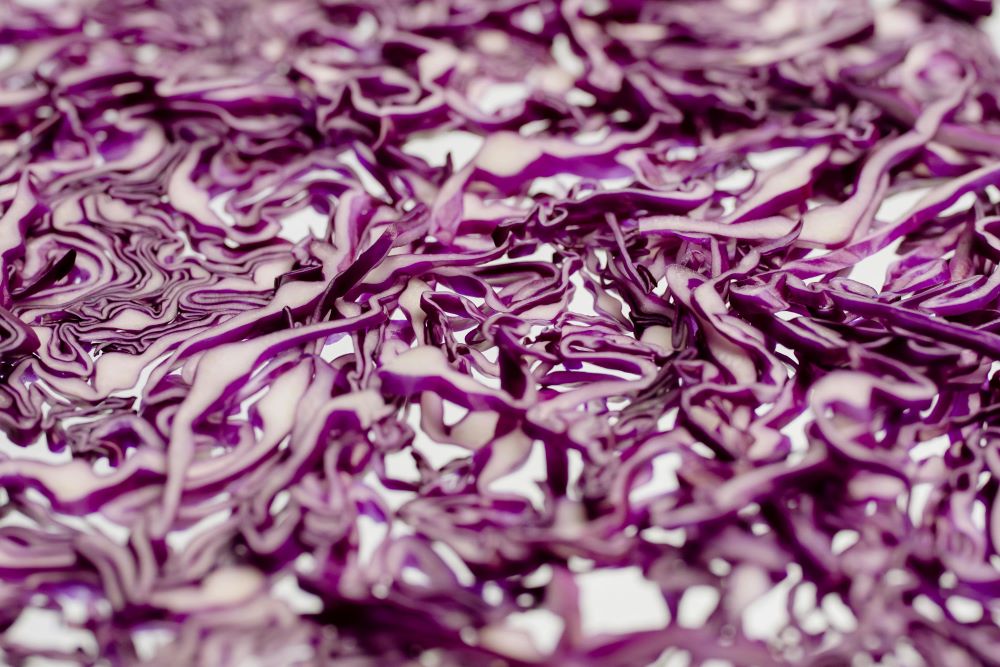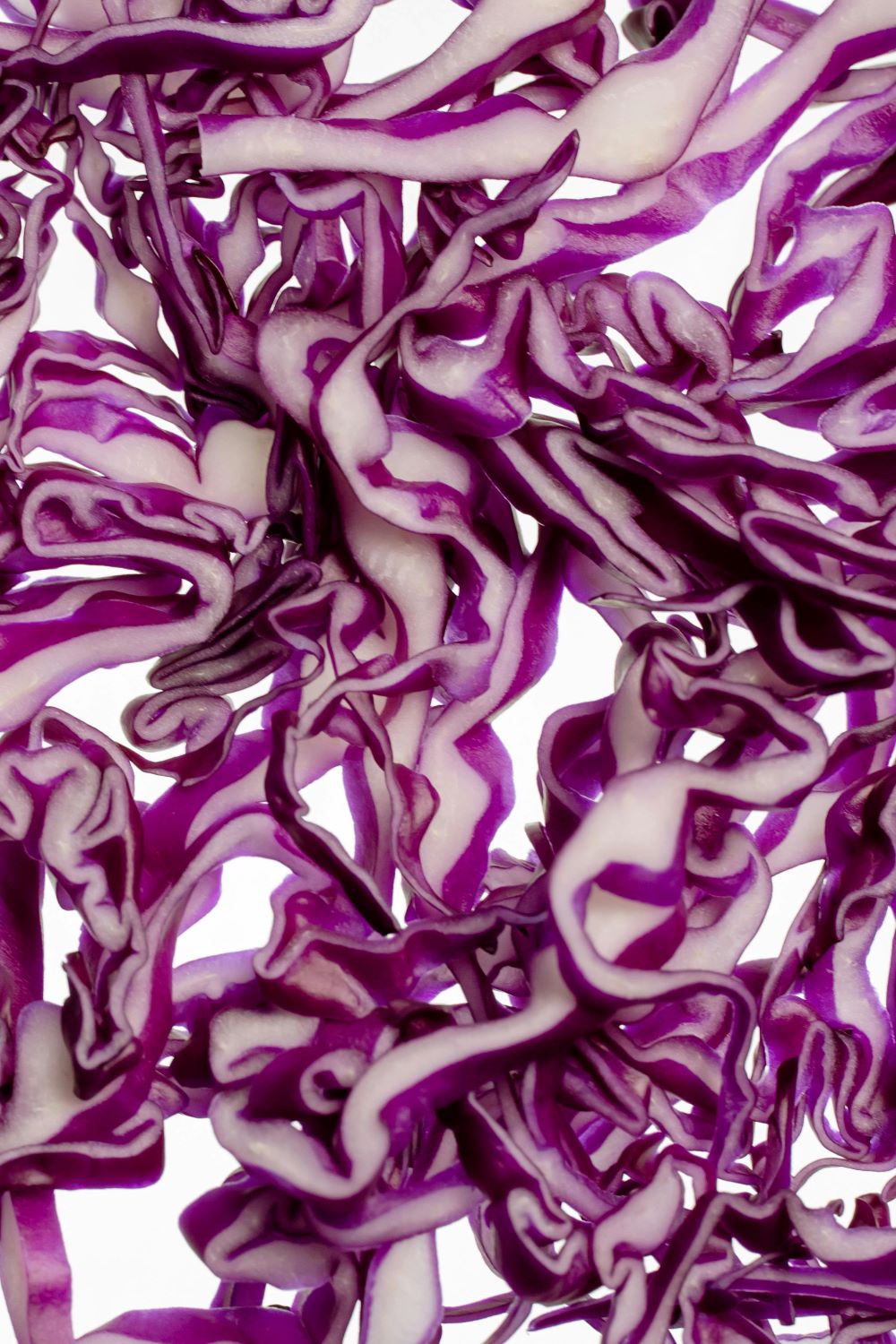Researchers find red cabbage juice minimized symptoms of irritable bowel disease in mice.
Ongoing research has shed some light on the connection between gut health and overall well-being, highlighting the importance of maintaining a balanced microbiome for preserving digestive health, immunity, mental health, and more. Adding to this growing body of research, a recent study published in the International Journal of Molecular Sciences has shown how natural juices are essential for optimizing health. Researchers at the University of Missouri specifically uncovered evidence suggesting that red cabbage juice has the potential to balance gut microbiome and maximize gut health. The juice is a blend of fruits and vegetables rich in polyphenols and other bioactive compounds known for their antioxidant and anti-inflammatory properties. The team found the juice restored microbiome balance, alleviating symptoms of irritable bowel disease (IBD) in mice.
Red cabbage itself is packed with a variety of vitamins, minerals, and phytonutrients. It also contains high levels of polyphenols, including flavonoids and anthocyanins. Polyphenols, abundant in many fruits and vegetables, are micronutrients that have been linked to improved digestion, reduced inflammation, and enhanced immune function. The juice can be prepared by blending or juicing fresh red cabbage leaves, often with the addition of other fruits or vegetables for improved flavor. It can be consumed by itself or added to smoothies, cocktails, or salad dressings.
In the study, the juice was administered to the mice through various delivery methods, such as oral gavage or inclusion in their diet. Researchers monitored changes in bacterial populations over time to see if ingestion improved gut microbiome balance.

Santayana Rachagani, an associate professor in Mizzou’s Department of Veterinary Medicine and Surgery and the Roy Blunt NextGen Precision Health building, explained, “Red cabbage juice alters the composition of gut microbiota by increasing the abundance of good bacteria, resulting in increased production of short chain fatty acids and other bacteria derived metabolites ameliorating inflammation. These changes in the gut microbiota are associated with improved gut barrier function, enhanced colon repair and anti-oxidative effects, ultimately mitigating intestinal damage and colonic inflammation.”
It’s important to note that while these initial findings are promising, further research is needed to fully understand the impact of red cabbage and other natural juices on health. Additionally, factors such as diet, lifestyle, and gut microbiome composition can influence outcomes.
However, despite this precaution, Rachagani said, “These findings offer new insights into the mechanisms underlying red cabbage juice’s therapeutic efficacy in ameliorating IBD. Its ability to modulate gut microbiota, activate anti-inflammatory pathways and enhance immune regulation underscores its potential as a valuable therapeutic agent for IBD and related inflammatory disorders.”
Many other juices have been shown to boost gut health. Some of the most well-researched natural options include beet juice, which can help improve blood flow to the digestive system, ginger juice due to its anti-inflammatory and anti-nausea properties, carrot juice, which supports the health of the mucous membranes lining the digestive tract, celery juice, also beneficial for reducing IBD symptoms, and pineapple juice, which alleviates symptoms of gastrointestinal discomfort. Aloe vera, leafy green, turmeric, cabbage, and lemon juice have also been proven to be beneficial for maximizing gut health.
Sources:
Researchers find evidence a natural juice can help gut health


Join the conversation!